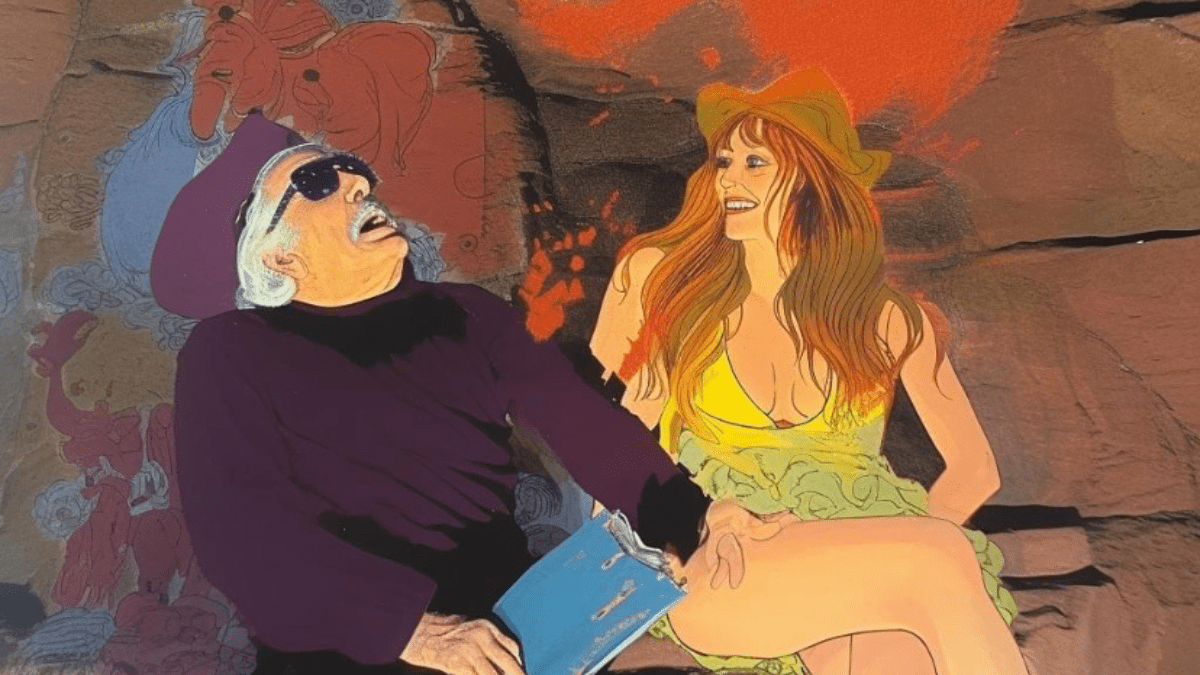Eros, operating at the level of cause and effect, is exceedingly pragmatic. As we learn to tune in to it and align our choices and actions with it, we may find we are led to naturally fulfilling outcomes. When we are not, when we are guided by unevolved or unexplored behaviors, we may find the opposite. Eros, as an evolutionary force, guides us toward that which works.
First, unconditionally accepting another’s rule-based reality, when disconnected from Eros, descends into legalism. Unconditional reality, when operating on its own, leads to violation.

Our goal is to live in unconditional reality while respecting the sanctity of all conditions. We must be sensitive to and genuinely respect when we receive an external no, while always looking behind its veil for our own internal yes. Regardless of whether we believe in the nos we are getting, our unconditional yes must be a yes to them with genuine approval.
If we live in unconditionality, we have the wealth and the noblesse oblige to support others, even when they disagree with our views. More than an obligation, it is in fact our practice to do so.
We must also be aware of matching funds. If we give more resources than someone can receive, they will experience shame. The shame is then likely to turn into blame. Or, because it has not been received and integrated into consciousness, it can be used to destroy themselves or us. This is what happens with undigested funds, which includes advice, energy, and an overabundance of words and resources, including attention. If we under-match funds, it will always be perceived as abandonment. Abandonment will activate shame. A shame that they are not worthy of attention. In turn,
We cannot win without balance. Likewise, disconnection creates tumescence. Stay connected no matter what. Remain always in the feedback-loop process. If we do not and we disconnect, that energy inevitably becomes tumescence, and will be used either against the person we have disconnected from, against ourselves, or both.

Potential always exists to deeply tumesce a connected system, but no potential exists to detumesce one. The best possible outcome is a stalemate, which locks the energy down and freezes it. In other words, tumescence cannot be destroyed, it can only be converted or frozen. It will not get better on its own. We have to turn our consciousness off in order to believe it will.
Last, we must live in unconditionality while we learn to stay connected to people as we interact with them in the roles they cast us in. Sometimes people want to entertain feelings of rejection. Accordingly, we may find ourselves in a situation with them where our buttons are being pressed to evoke a particular response. In this example, they would likely have made it untenable to include them, leaving us no choice in the matter. This can be an unconscious or conscious experience for us. When we do it unconsciously, we speak our lines as the drama unfolds, attached to the emotions that drive the response. This will likely occur if we have not done the careful internal work to disarm our own triggers.
But getting high comes with a price, and here, it comes at the cost of our volition—we’re driven by our reactions, not our consciousness.

When we do it consciously, we can play the part being called for without attachment or reactivity to the emotional tone of the response, and without attachment to how we want to be perceived.
In the drama, we can be someone’s tormentor, if that is exactly what they want. On a different day in a different scene, we could be their rescuer. When we understand this, we see that people want many different kinds of experiences. The human experience is rich with archetypes just waiting to be stepped into and played out.
The key is to do it deliberately with the knowledge that there exists dynamic energy that makes itself available in the forms people want to see.
Somebody might have chosen us to act out their final rejection scenario with them before discovering it’s a pattern they want to break. Avoiding our part would mean depriving them of that experience. Maybe they would find it with another person, or maybe they sensed we possessed the perfect combination of qualities needed to fit the bill.
In our own practice, we can begin to study the situations and dynamics we play out with others so we can decode them, see them as the timeless human entertainment they are. Withdrawing the moment things get thick could be an effective strategy to avoid discomfort. However, it will ensure we remain light on the seasoning required to genuinely see into the drama so that we may emotionally step out of it. We make an agreement here: to be played by life until we catch on.
We are so focused on ending that which we feel exploited by, from people to habits to institutions, that we miss the blessing to rise in power and grow in consciousness so we become truly unexploitable, and even come to genuinely enjoy the experience, discovering that this force is one of our greatest allies.